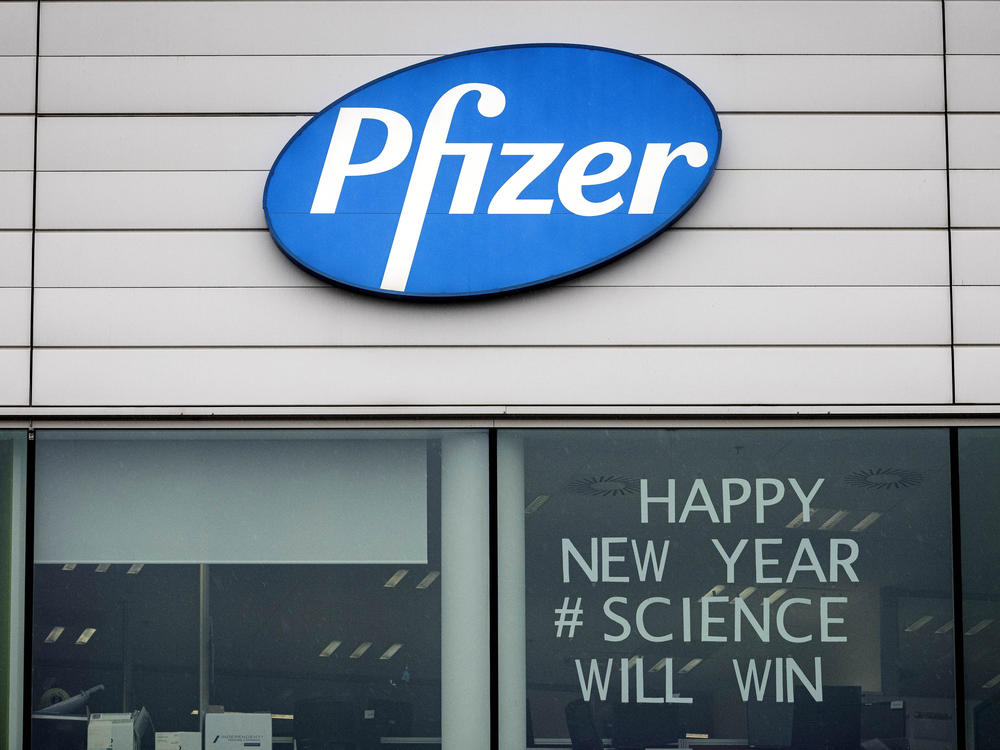Section Branding
Header Content
EU Approves Use Of Pfizer-BioNTech COVID-19 Vaccine
Primary Content
Updated at 12:45 p.m. ET
The European Commission, the EU's executive arm, has approved use of the COVID-19 vaccine developed by Pfizer and BioNTech, just hours after the EU's drug agency gave its authorization. Inoculations are expected to begin across Europe next week.
"Our thorough evaluation means that we can confidently assure EU citizens of the safety and efficacy of this vaccine and that it meets necessary quality standards," Emer Cooke, executive director of the European Medicines Agency, said in a statement.
The European regulator is recommending the use of the vaccine in people 16 or older as U.S. federal officials did earlier this month. The U.K., no longer a member of the EU, is also already carrying out inoculations with the Pfizer vaccine.
The European agency has been under criticism in recent weeks for being slow to issue its recommendation. In addition to the U.K., the Pfizer-BioNTech vaccine has already been authorized for use in the U.S., Canada and several other countries.
The European Medicines Agency recommended a "conditional marketing authorization" — a regulatory mechanism that allows for early access to medicines due to an "unmet medical need," in this case the pandemic.
The news comes as most EU countries have imposed travel restrictions, including halting flights and trains from the U.K., where a strain of the vaccine appears to be especially transmissible — though there are not indications that the strain causes more severe cases of COVID-19.
The agency said its recommendation for the EU to authorize use of the vaccine is a milestone in combating the coronavirus. "Today's positive news is an important step forward in our fight against this pandemic, which has caused suffering and hardship for so many," Cooke said.
German Health Minister Jens Spahn is among those who has pushed for the EU to speed its authorization. He has told outlets that the goal was to get the vaccine authorized before Christmas, so that inoculations could begin this year.
NPR's Rob Schmitz contributed to this report from Berlin.
Copyright 2020 NPR. To see more, visit https://www.npr.org.

